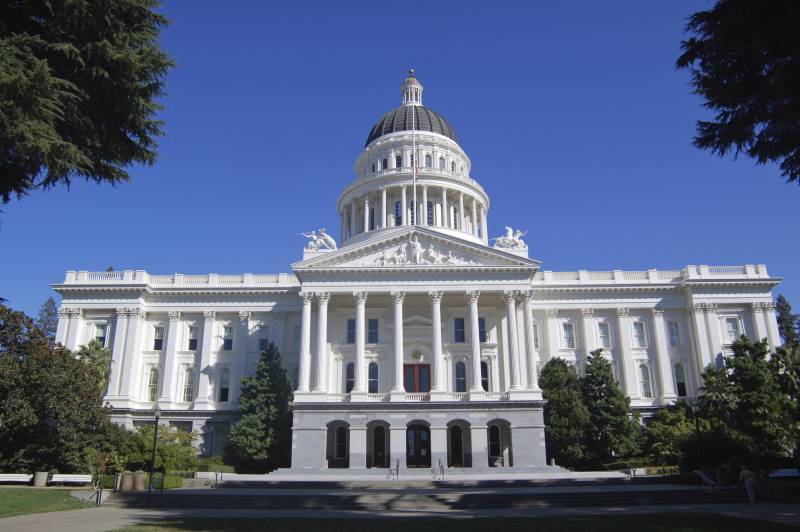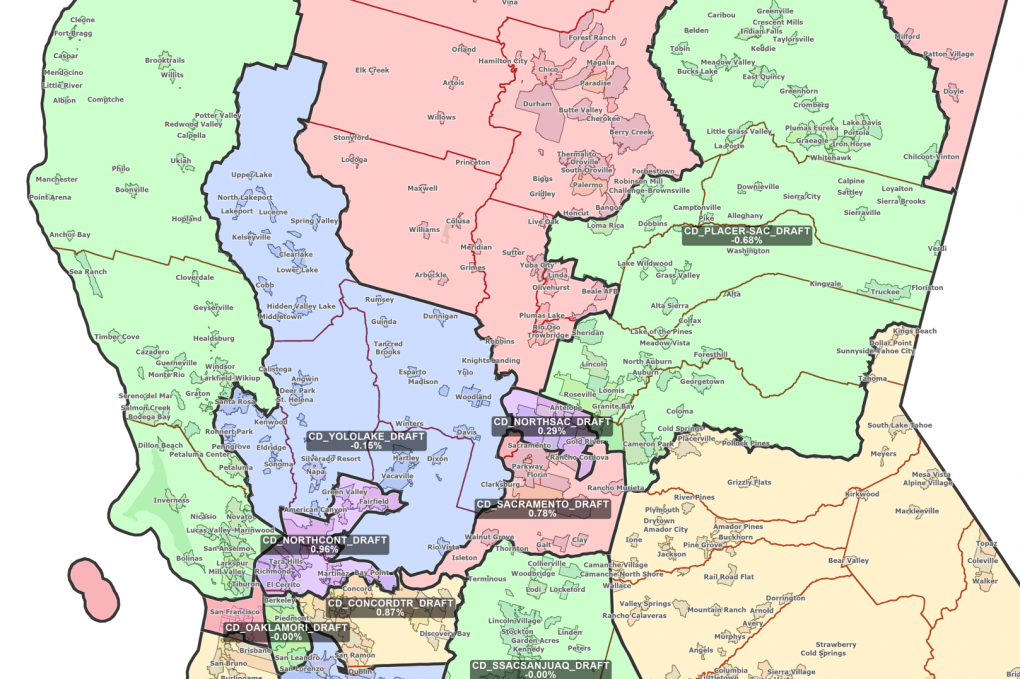The budget also includes $1.2 million for its legal counsel. Under the contract with Strumwasser and Woocher LLC, the senior counsel and partners are paid $575 an hour and associates $375 an hour.
And the commission has budgeted $1.6 million for its mapping consultants: HaystaqDNA and Q2 Data & Research LLC. The previous commission paid $592,000 to Q2 for line drawing.
The Legislature allocated money separately to the Statewide Database to create a mapping tool. And the state auditor’s office received a $5.2 million appropriation to select and empanel the commission.
Commissioners, themselves, get a stipend — $378 per day when attending meetings or doing commission work. The commission voted to allow those commissioners who wanted to meet in person to do so, and their travel is reimbursed. The others participate via Zoom.
Though some commissioners have been noticeably absent from meetings, there are no attendance requirements. Republican political strategist Matt Rexroad said that while he understands that the commission members might be juggling multiple jobs, they need to hear public input to make decisions.
“If you value the public input, you show up to listen to it,” he said via email.
The commission reaches a key milestone when it releases its preliminary congressional and legislative maps for public comment. But many changes are likely before final districts are adopted in late December for the 2022 election.
The commission has been meeting six days a week most weeks since mid-November and plans to continue on that schedule until adopting final maps late this month.
It approved preliminary maps Nov. 10, but it’s already blowing some of them up. It wrapped up new versions of state Assembly maps, but not until about 12:40 a.m. Tuesday.
To balance the various criteria the commission has to weigh, some of the districts ended up oddly shaped. There were long “necks” within districts, for example, in San Pedro to separate the ports, as requested by community input.
Commissioners, who started reviewing congressional districts Tuesday, asserted that there isn’t a great way to evaluate one community of interest’s input over another.
But Assemblymember Lorena Gonzalez, a San Diego Democrat, called the line drawing “a mess.”
“Why? The lack of foresight to start with previous maps also drawn by an independent commission,” she tweeted Tuesday. She’s so fed up that she says legislators, who know their districts, should have a bigger say in the process — although voters approved the commission in 2008 precisely to decrease legislator influence.
That initiative should be revisited, Gonzalez says: “There should be a better way to avoid political gerrymandering, while giving a true voice to the community and its representatives.”
Jonathan Mehta Stein, executive director of California Common Cause, a government reform group that pushed for independent redistricting, said the messiness is better than the alternative.
“Democracy done in public is going to be messy. These are 14 folks with the best interests of California in mind, trying to draw a huge number of districts on a public livestream,” he told CalMatters via email. “They can’t take things into a back room for a couple weeks to work on it, make some mistakes, and then bring back a more polished product. We’re seeing everything — and that includes the good and the bad.”
Efficiency and transparency
Commissioner Sara Sadhwani defended the new Assembly map, which she said was “based on compromise and consensus.” But in a Tuesday tweet, she acknowledged that “not everybody will be happy.”
For some, it’s more than unhappiness with the maps themselves.
On Nov. 30, five Republican voters filed an emergency petition with California’s Supreme Court to order the commission to disclose its analysis on past racially polarized voting, which it uses to draw districts to comply with the Voting Rights Act.
The petition, filed by Harmeet Dhillon, a Republican National Committee member, also says that any private conversations between commissioners and interest groups should be made public. Finally, the complaint urges that the commission’s legal counsel be fired because it has also worked for legislative leaders and the campaigns of former President Barack Obama.




